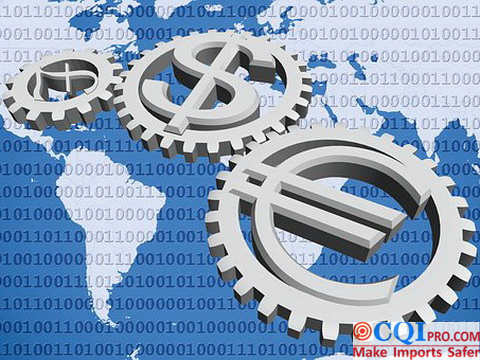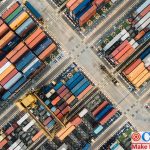Sample Complianace Service, Optimize The Import Process

In the international trade, we often see that the importer’s customers ask the sample development factory in China to modify the samples round and round, back and forth, and keep sending the samples across the border to the importer’s foreign office to confirm the samples, which seems to have become the practice, the factory provides the samples for free, and the customer bears the cross-border courier fees. Everyone is used to this operation, it seems, there is no excuse. But the back and forth, repeatedly cross-border mail samples delayed sample development time, but the cross-border courier company business is booming.
This is the traditional practice, decades, no one to change, but the epidemic came, everything is slowly, unknowingly changed.
For example, the new situation of the normalization of the fight against epidemics in various countries, because of the problem of epidemics, resulting in cross-border courier transportation, distribution, customs clearance, courier delivery time can not be guaranteed.
The time requirements of the samples, decided to continue to rely on the current general cross-border courier logistics, is not the most sensible choice.
(2). In order to ensure the timeliness of sample development and enhance competitiveness, importers must find new ideas to solve the problem.
To answer this question, please first think about a question, what is the deep-seated reason why importers ask factories to send samples repeatedly for confirmation?
Common reasons, because the factory is a foreign trade export, the importer and the supplier (factory) both need to overcome a lot of difficulties and differences, such as
Language barrier, communication barrier, time difference, cultural difference, different understanding of products and their quality,
Importers are used to feel the samples through the physical samples in their hands, which is the most intuitive. However, due to the normalization of the epidemic, cross-border courier epidemic review, increasingly strict, resulting in courier companies can not guarantee the effectiveness of the delivery, and the cost of cross-border courier is relatively expensive.
In the context of the global economic recession and the consumption crunch, cutting costs is a must for all companies.
(3). In urgent cases, the importer has to choose the sample picture to determine whether the sample is qualified or not.
Sample development is time-sensitive, therefore, some importers, have to sample can not be mailed, through the factory photo of the product, choose to trust the factory, directly through the picture to determine whether the sample is qualified, and thus,
the order to the factory, and ask the factory to arrange for the generation of large shipments in a timely manner.
In urgent cases, this operation seems to be no excuse, but often do so, the importer found that it is quite convenient, no cross-border mail samples, save a lot of time, and save courier fees, the factory is happy, the importer is happy, all happy.
The premise of doing so without risk, is that the factory and the importer have been very good together, both sides are very professional, and know the roots. Trust is very high. Such a factory and the importer’s cooperation model is optimal, but the proportion is very small.
(4). In most cases, it is not feasible for an importer to determine whether a sample is qualified by the sample picture.
Since most factories, especially small and medium-sized suppliers (factories), to attract new customers (importers) with low prices, need to maintain a long-term cooperation with an importer customer, requiring long-term time and effort, and costs. It takes time and effort, and expense. Both sides continue to make trial and error, and slowly work together to reach a high level of trust. This requires a long process, patience and tolerance for mistakes on both sides.
In a highly competitive market environment, waiting patiently is unrealistic and can lead to business passivity and even failure.
The process of integration between the two sides is mainly to eliminate the differences in product quality perception, usually, the production of samples in factories is usually done by a few prototypers, their understanding of the product is to meet the requirements of the appearance, while the foreign trade salesman of the factory, subject to the production costs of the factory products, the understanding of the product is, a penny for a penny.
However, the subconscious of the importer, indeed, according to international practice, only the factory accepted the order, the factory is responsible for generating products that meet the quality requirements. Such differences are common and unavoidable, because of the different positions.
(5). SCS service provides Sample Quality Inspection (SQI) report, how to help importers quickly confirm whether the samples are qualified.
The importer asks the factory to mail the samples to the CQI office for Sample Quality Inspection (SQI), avoiding the problem of cross-border express delivery during the epidemic without guaranteed timeliness. The objective and detailed Sample Quality Inspection (SQI) greatly facilitates the parties concerned to use it as an objective basis to coordinate their differences.
It is worth mentioning that SCS technicians have a professional product quality inspection industry background, understanding of the product is not related to the price of the transaction between the two sides, with a third-party perspective to carefully examine and assess the quality of the sample to meet industry requirements, whether the compliance.
In this way, the importer and the factory can avoid the natural deviation of the understanding of product quality, and each side of the argument, resulting in the two sides of the trade cooperation stagnation, inefficient. For the importer, the SQI report, professional and detailed, comprehensive content, sample inspection related video, according to which the importer can easily understand the quality of the factory’s samples and all aspects of the details, quickly and risk-free feel whether the sample meets the requirements.
The introduction of SCS service is based on CQI’s background as a third-party quality inspection company with well-established product quality technicians and product quality management experience. The key technical document in the SCS service is the SQI report, which can effectively help importers, from the perspective of product quality, in-depth understanding of the quality of the sample, rather than just rely on the factory staff to provide pictures of the sample, only from the surface to confirm whether the sample is qualified, which often brings great risk of loss.
In addition, the objective and professional detailed sample quality inspection SQI report. It can effectively help importers to understand the similarities and differences in the quality of samples produced by different factories. It is also very convenient for the importer to discuss with the factory about the modification of the samples.





